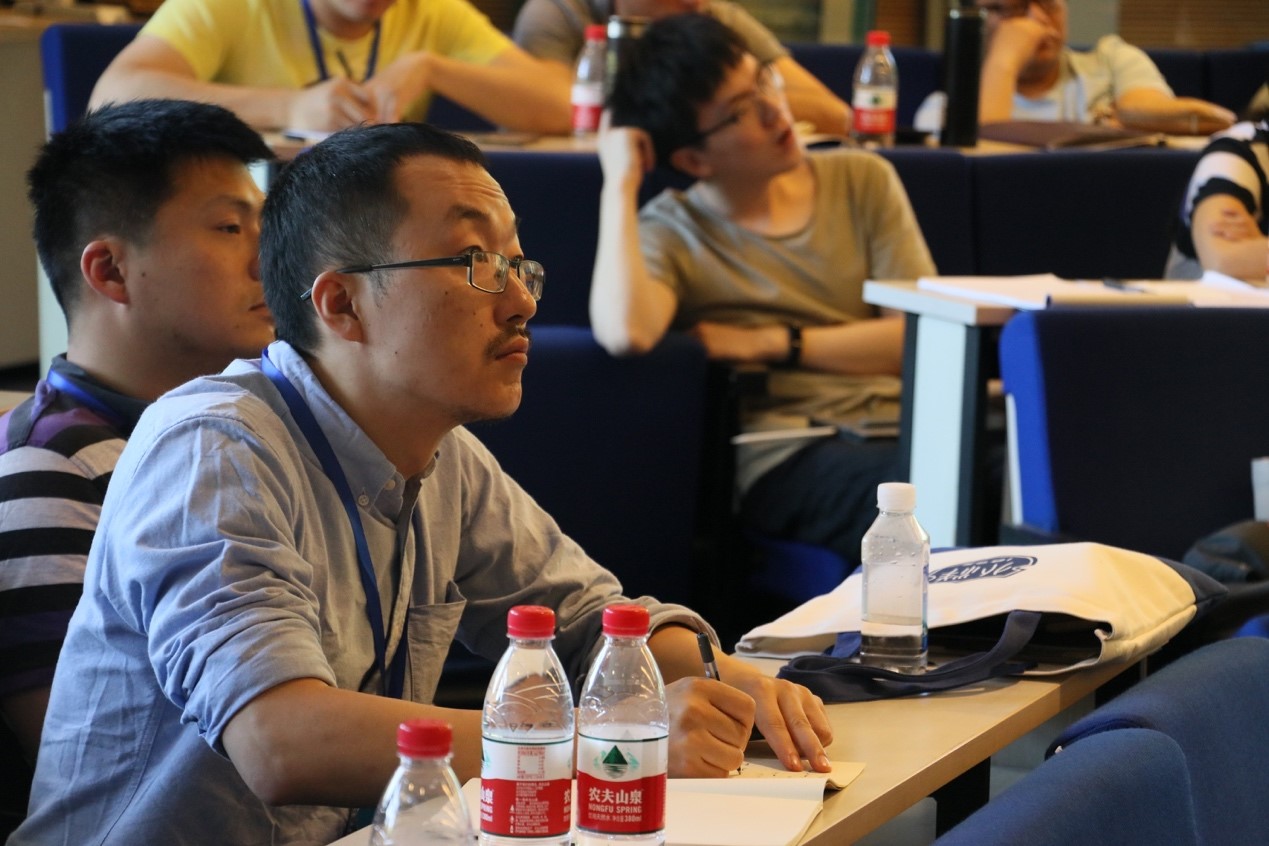From May 28 to May 31, Tianyuan Advanced Seminar in Algebraic Geometry was successfully held in Tianjin University. In the form of report, the seminar focused on topics of “Betti Moduli”, “Matroids Theory”, “Higgs Bundle” and “p-adic Geometry”. The seminar invited well-known scholars from home and abroad in the field of modular space theory and arithmetic algebraic geometry to make a series of thematic reports or serve as members of the organizing committee. It attracted more than 80 young and middle-aged algebraic geometrists from American, German, French, Japanese and domestic research institutes such as Peking University, Tsinghua and Chinese Academy of Sciences. The seminar is sponsored by National Natural Science Foundation of China Center of Applied Mathematics, Tianjin and Tianjin University, and hosted by School of Mathematics, Tianjin University and Center of Applied Mathematics, Tianjin.
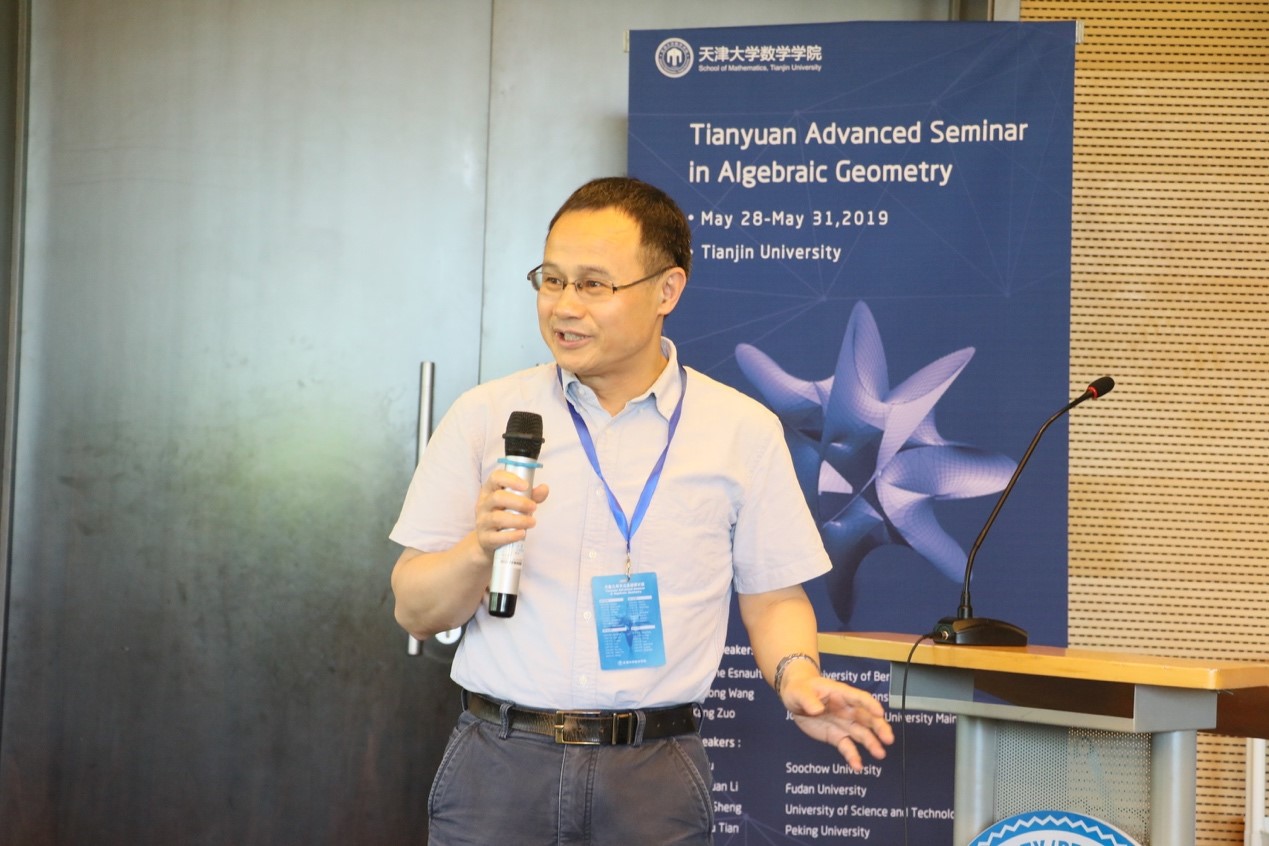
Professor Hélène Esnault from Free University of Berlin, Assistant Professor Botong Wang from University of Wisconsin-Madison and Professor Kang Zuo from Johannes Gutenberg University Mainz each made four one-hour reports. Yi Gu from Soochow University, Zhiyuan Li from Fudan University, Mao Sheng from University of Science and Technology of China and Zhiyu Tian from Peking University each made one-hour report.
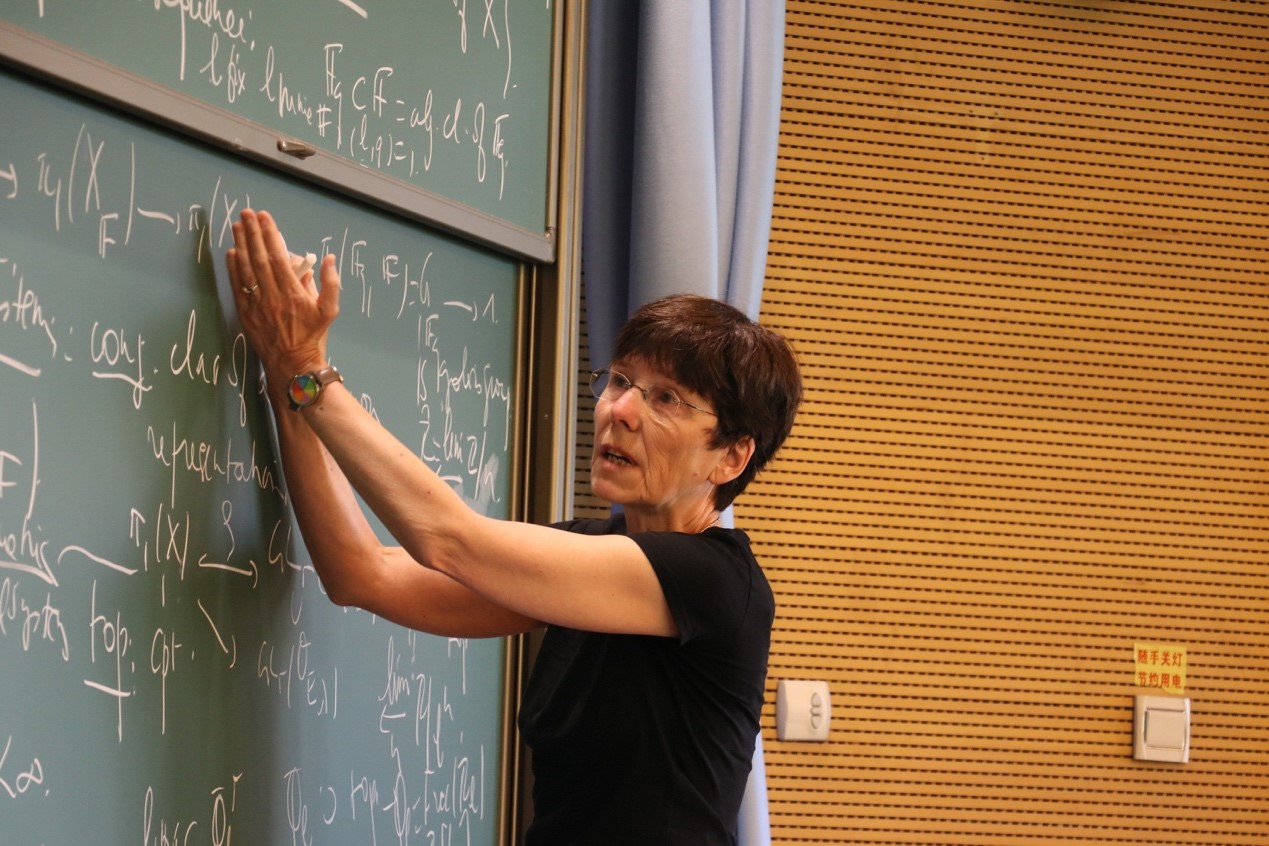
Sun Xiaotao, Dean of School of Mathematics, Tianjin University, chaired the seminar and announced its start. The three main speakers each made four one-hour reports
 .
.
Hélène Esnault introduced Langlands program and Simpson conjectures, explaining that isolated points in the Betti moduli of smooth complex projective varieties are of geometric origin while proposed vision on general points.
Botong Wang from University of Wisconsin-Madison demonstrated matroids, the Chow ring of matroids and Hodge theory and how to use algebraic geometry tools to solve some important problems in combinatorial mathematics and finally introduced Kazhdan-Lusztig theory for matroids and June Huh, Jacob Matherne and Nick Proudfoot about the cohomology theory for non-realizable matroids.
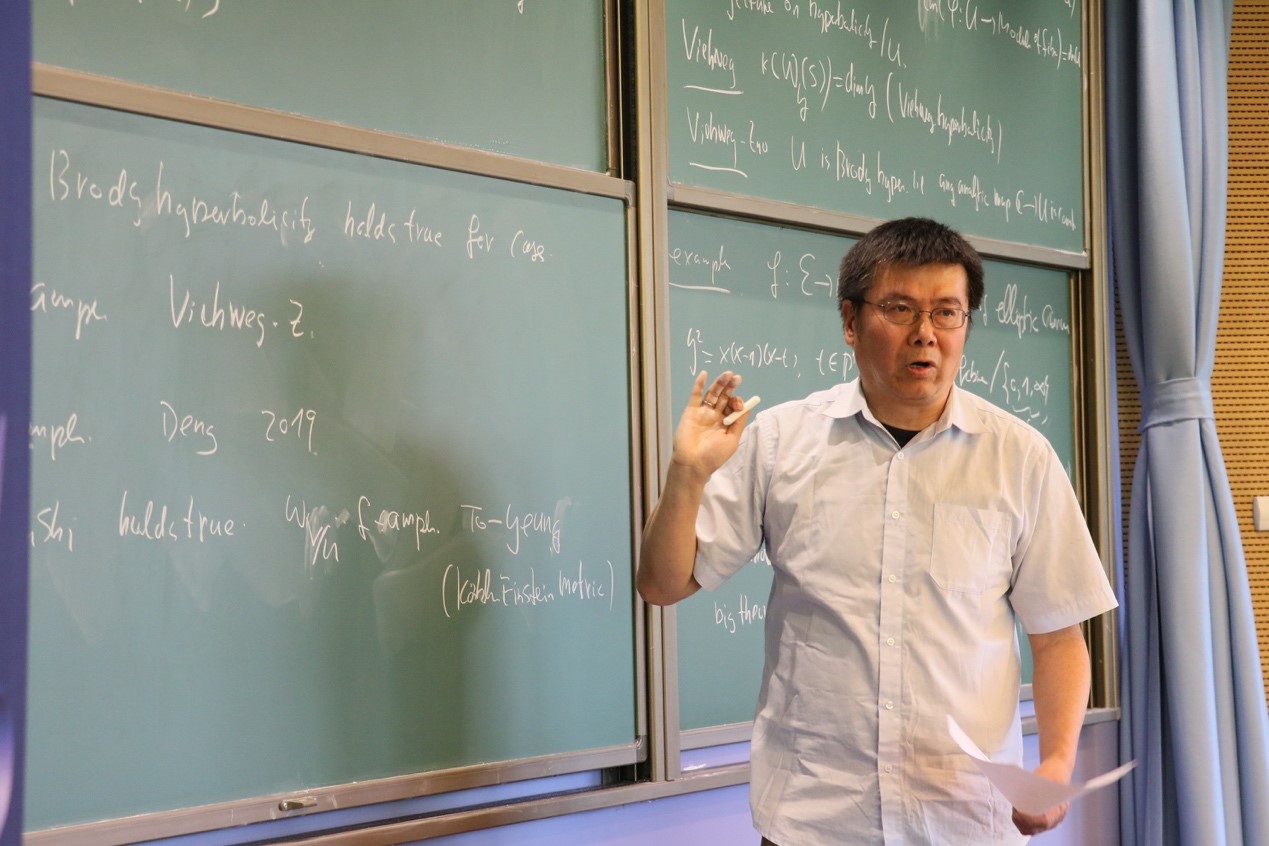
Professor Kang Zuo from Johannes Gutenberg University Mainz focused on Shafarevich Program,classification of smooth projective curves with given hodge types and higgs bundle, p-adic and arithmetic nonabelian hodge theory, overviewing recent progress of the Higgs bundle theory in algebraic and arithmetic geometry for the audience.
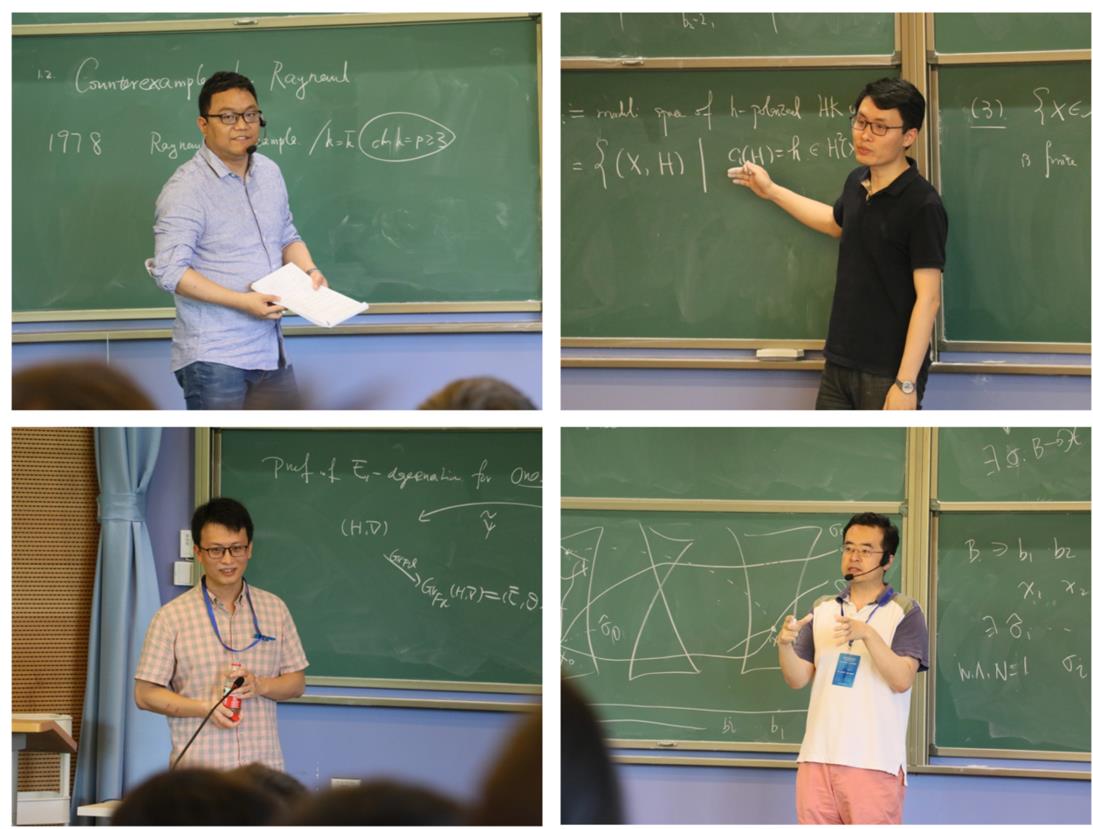
Four domestic reporters gave one-hour reports. Yi Gu from Soochow University demonstrated latest outcome on slope inequalities and Miyaoka-Yau type inequality in positive characteristics; Zhiyuan Li from Fudan University talked about the unpolarized Shafarevich type questions and its relation to Torelli theorem; Mao Sheng from University of Science and Technology of China analyzed decomposition theorem for intersection de Rham complexes and gave an algebraic proof of E1 degeneration and Zhiyu Tian from Peking University emphasized on new things on weak approximation and separable rational connectedness of smooth Fano hypersurfaces in positive characteristic.
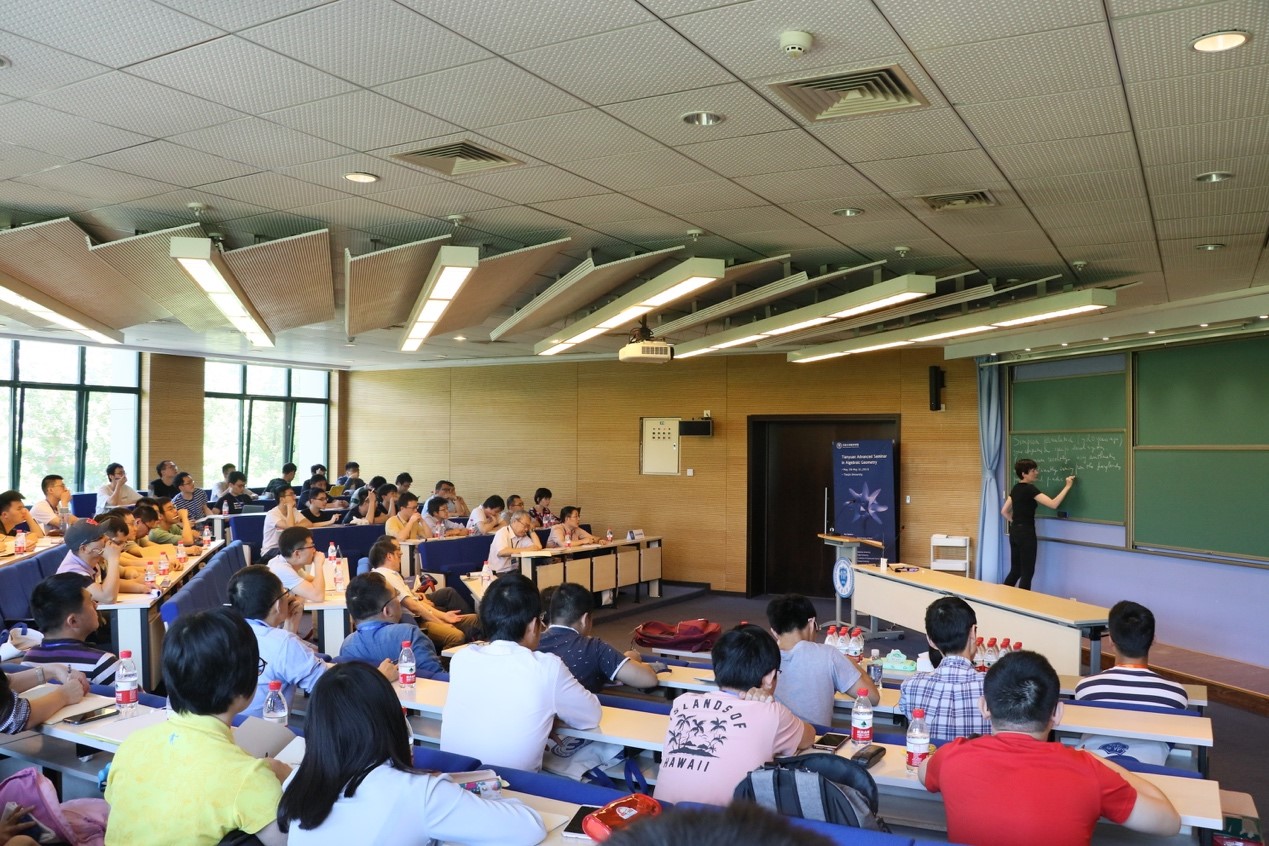
This seminar followed the pattern of thematic discussion, which provided an academic journey worthy of consideration and reference for audience and a good opportunity for participants to have a collision of ideas and learn from each other.
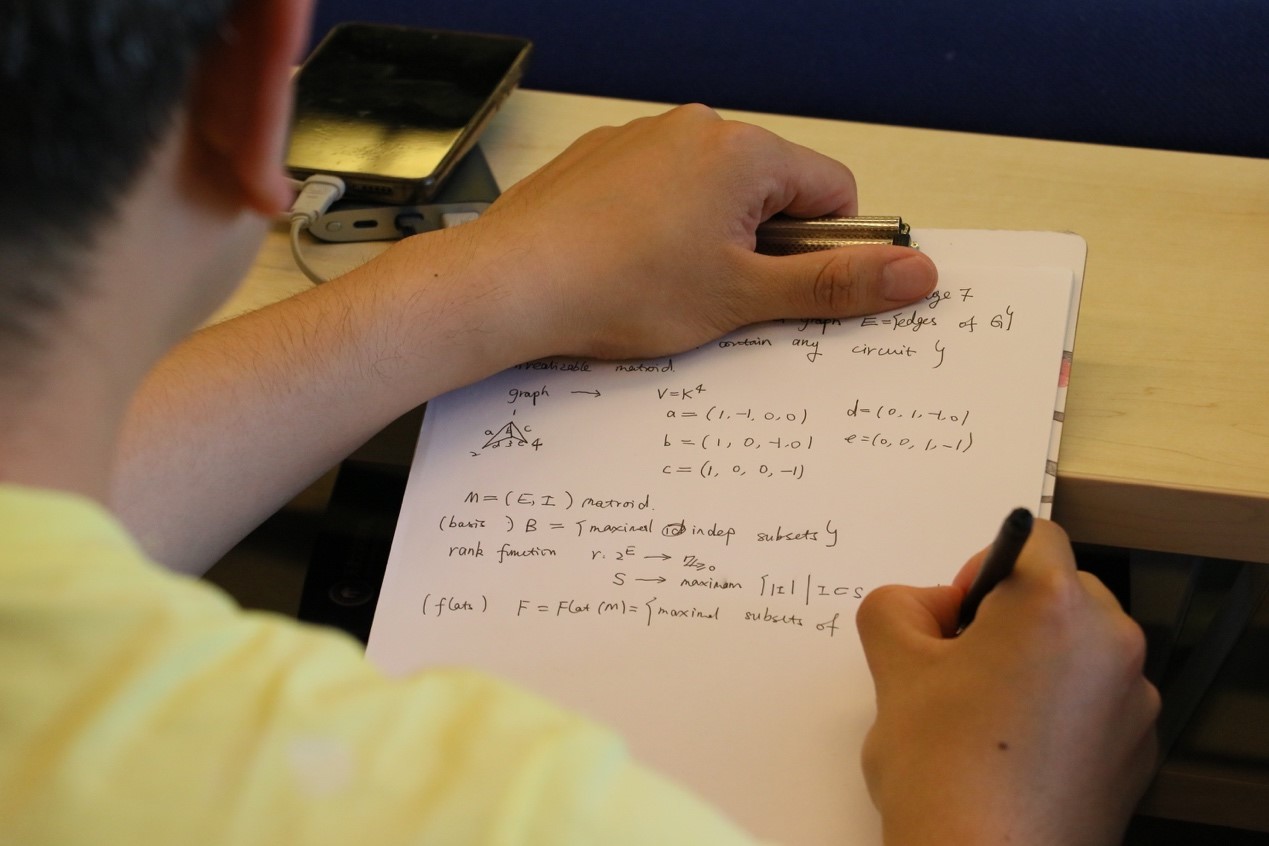
The success of this advanced seminar on algebraic geometry was conducive to deepening the understanding and cooperation of mathematics professionals in Tianjin University, as well as to the continuous improvement of the international influence and social reputation of our mathematics discipline. This was also the sixth Seminar on algebraic geometry funded by the Tianyuan Fund, which was a special fund set up to gather the collective wisdom of mathematicians and promote the construction of a mathematical power. It supported scientific and technological personnel to carry out scientific research, cultivate young talents, promote academic exchanges, optimize the research environment, disseminate mathematical culture and enhance China's mathematical innovation ability in the light of the characteristics and needs of mathematics disciplines.
